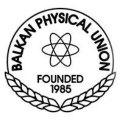Speaker
Description
The field of Nanoscience and Engineering (NSE) is a modern and dominant field of research that is developing rapidly, already offering useful products and applications. Nanoscience is the scientific branch that concerns the research of interactions at the nanoscale (1-100nm) while nanotechnology deals with the management and reconstruction of matter at the nanoscale. The development of NSE prompted researchers of the Didactics of Natural Sciences to focus on educating students in the field of NSE, as they are the generation that will encounter many of its applications.
The lotus effect is a typical issue found in almost all proposals for the introduction of NSE in education, regardless of age. In most cases, however, the approach to the subject is limited to a phenomenological level. The lotus effect refers to the water repellent capacity of the leaves due to the architecture of their surface at micro- and nanoscale, which minimizes the adhesion of droplets. The surface characterization of the hydrophobic and hydrophilic leaves helps us determine the role played by the micro- and nanostructures on the surface, to justify the macroscopic properties of the leaves. Understanding the functions provided by processes found in nature, such as the study of the lotus effect, is a modern and interesting topic for students, which can increase their motivation for Physics itself. However, it is necessary to transform the scientific content into knowledge appropriate for the age and mental abilities of the students.
This paper suggests a didactic proposal for the introduction of the lotus effect in secondary education. Through the MER methodology (Model of Educational Reconstruction), the scientific content is analyzed and transformed into a content structure for instruction, defining the learning objectives of each unit and considering the difficulties and misconceptions that students may have. This work will present the implementation of the educational reconstruction considering all the parameters involved in the learning process of this section.
Acknowledgements The corresponding author acknowledges the Research Committee of Aristotle University of Thessaloniki (RC-AUTH) for the financial support of the participation in BPU11.

